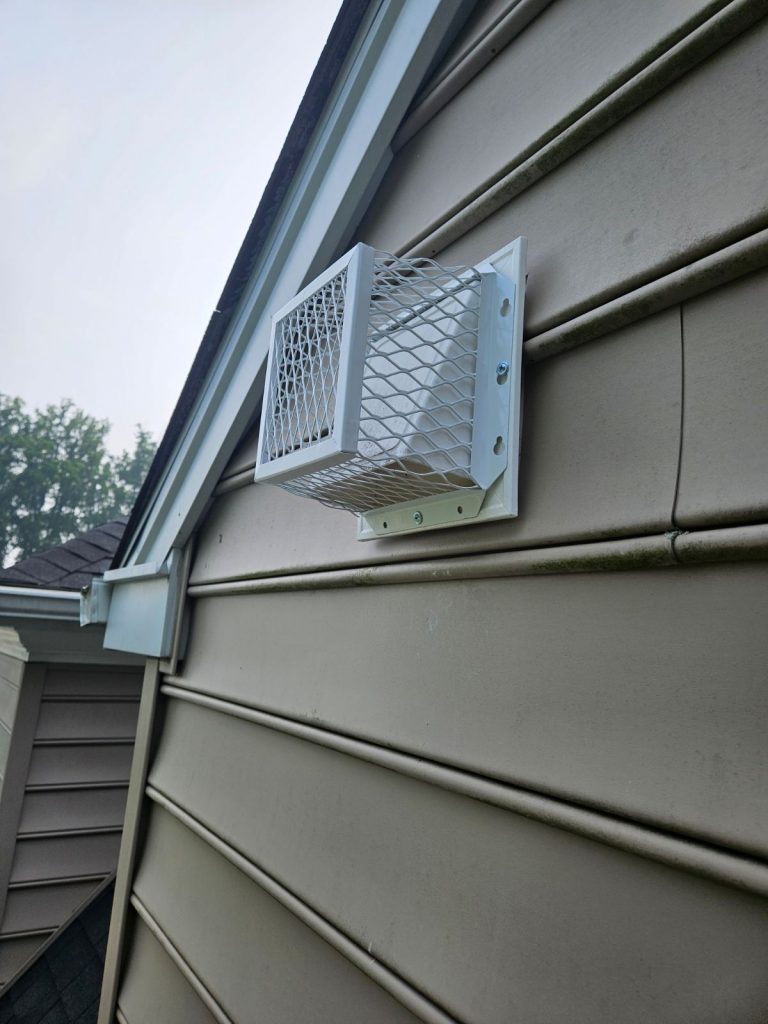Birds flocking around your property may seem harmless, or even picturesque, but they can lead to severe challenges if left unchecked. From property damage to health risks, nuisance birds can cause a variety of long-term issues for homeowners and businesses alike. Bird exclusion is a proactive and humane way to avoid these problems while maintaining a safer and more comfortable environment.
This blog will discuss why bird exclusion is essential, the problems caused by nuisance birds, and effective methods for keeping them at bay. Whether you’re a homeowner tired of cleaning bird droppings or a business looking to protect your investment, this guide is your first step to understanding the necessity of bird exclusion.
Why Nuisance Birds Are a Growing Problem
The Consequences of Unchecked Bird Activity
Nuisance birds such as pigeons, seagulls, sparrows, and starlings are known for causing significant damage to properties. Their droppings are more than just unsightly; they are highly acidic and can corrode materials such as metal, concrete, and paint. Over time, this can lead to costly repairs.
Additionally, birds often build nests in inconvenient or hazardous locations, such as roof vents, chimneys, gutters, and HVAC systems. These nests can block airflow, cause water damage, and even create fire hazards.
Health Hazards for People and Pets
Birds can also pose serious health risks. Their droppings can harbor harmful pathogens, such as bacteria, fungi, and viruses, which can lead to diseases like histoplasmosis, salmonellosis, and psittacosis. The presence of birds in or around food-related industries can create hygiene issues that compromise regulatory compliance and food safety.
Furthermore, birds are common carriers of parasites such as lice, fleas, and mites, which can infest both people and pets. For businesses, the health risks associated with birds can even lead to liabilities or legal repercussions.
Impact on Reputation and Operations
For businesses, nuisance birds can harm their public image, especially in customer-facing industries like restaurants, hotels, and retail. Visible bird droppings and nesting materials can deter customers, while ongoing cleanup efforts can disrupt daily operations.
Homes aren’t immune to these issues either. Bird infestations can decrease property value and even strain relationships with neighbors affected by noise, droppings, or feather debris.
What Is Bird Exclusion?
Definition and Purpose
Bird exclusion is the practice of keeping birds away from specific areas using non-lethal methods. The goal is not to harm the birds but to create an unwelcoming environment that encourages them to relocate naturally. Unlike reactive solutions like cleaning or pest control, bird exclusion takes a preventive approach.
By restricting access to nesting or roosting sites, bird exclusion helps mitigate property damage, health risks, and operational disruptions.
Key Methods of Bird Exclusion
Physical Barriers
- Bird Nets
Bird netting is one of the most effective ways to block birds from settling in an area. Nets can be installed over rooftops, courtyards, balconies, and other open spaces to prevent access.
- Spikes and Wires
Anti-bird spikes and wires can be placed on ledges, rooftops, and fences to deter birds from landing or roosting. These tools are highly effective for areas with heavy bird activity and are humane as they simply make surfaces uncomfortable for birds without harming them.
Visual and Auditory Deterrents
- Reflective Objects
Objects like reflective tape, shiny discs, or mirrors can confuse and deter birds by reflecting light.
- Sound Devices
Ultrasonic devices or recordings of predator calls can discourage birds from nesting in certain areas.
While these methods can be helpful, they are often most effective when combined with physical barriers for long-term results.
Professional Solutions
For larger properties or more severe infestations, working with a bird control specialist is advisable. They can assess your property and install tailored exclusion systems that ensure comprehensive coverage without damaging your property or the environment.
Benefits of Bird Exclusion
Reduction in Maintenance Costs
Bird exclusion eliminates the need for frequent cleaning or repairs caused by droppings and nests. By investing in preventive measures, you save money over time by reducing property wear and tear.
Enhanced Health and Safety
Keeping birds away minimizes exposure to diseases, allergens, and parasites, ensuring a healthier environment for your family, employees, or customers.
Improved Professional Image
For businesses, effective bird exclusion creates a cleaner and more welcoming environment, improving reputation and customer satisfaction.
Peace of Mind
Knowing your home or business is protected from the risks associated with nuisance birds can alleviate stress and allow you to focus on more important matters.
The Importance of Professional Assistance
While DIY solutions can be effective for minor bird issues, professional assistance is often the best approach for larger or more complicated problems. Bird control specialists can:
- Conduct a thorough risk assessment of your property.
- Recommend the best exclusion measures for your situation.
- Install systems that are both effective and compliant with local wildlife protection laws.
Working with experts ensures that your bird exclusion efforts are long-lasting, humane, and suited to your needs.
Making Bird Exclusion a Priority
Bird-related problems only get worse over time. By addressing them early with effective bird exclusion measures, you can avoid significant expenses and headaches.
Whether you’re a homeowner looking to protect your investment or a business aiming to enhance operations and customer experience, bird exclusion is a proactive step towards a safer and cleaner environment.
For tailored solutions and expert support, consider partnering with bird control professionals to keep your property bird-free without disrupting nature’s balance.


